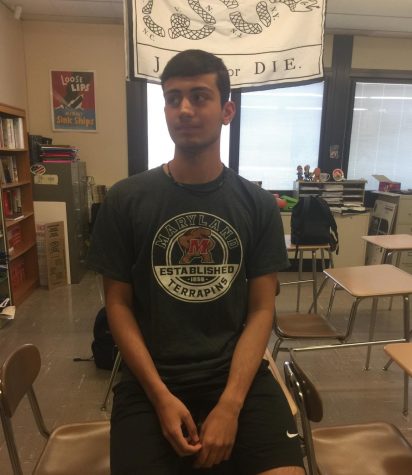Confused teens unprepared for politics
November 20, 2018
America has embarked upon the largest election since the 2016 presidential race. The midterm elections are being portrayed in the media as an epic battle rather than an election, taking place across the country in every state with some particularly ultra-progressive democrats and uber-conservative Republicans. The goal for the Democrats is to flip the House of Representatives and take back control from the Republicans in order to stop the legislation churned out by President Donald Trump. Meanwhile, the Republicans are trying to keep the power they have held for two years and plant the seeds for the future.
Common citizens find themselves caught between two warring entities, but on a smaller scale, the growing generation of high schoolers must grapple with the confusion of politics. The current generation of students has been portrayed as apathetic to political news, instead focusing on social media and their own personal bubbles.
However, over the past year, students at West Essex have proven that politics matter in many different ways. Last year’s walkout in response to the Parkland, Fla., mass school shooting at Marjory Stoneman Douglas High School attracted hundreds of students, and the town hall meeting that same day was a sign of student engagement with many asking questions and getting involved.
High schoolers, more than ever, do care about politics, but in a different way than past generations. Disturbingly, teens are more pessimistic about the future of the country than ever before. In a 2017 study conducted by the Associated Press, 6 in 10 believe that the country is heading in the wrong direction, and 81 percent believe that the country is more divided.
In West Essex alone, 34 percent of students want to actively discuss politics in class with their teachers and other students while those who do not want to talk about politics represent only .10% of those surveyed.
Unfortunately, the one place where students should be receiving the most political development is the one place where most schools actively avoid politics entirely: the classroom.
Schools have long maintained an unspoken policy to not talk politics in the classroom for fear of insulting students’ opinions or creating biases. It is a noble idea to try and preserve student’s sense of self-worth, but it is ultimately pointless. Most students will eventually graduate and go to a university where their ideas will be challenged on a daily basis. If the school does not prepare students, how can they be expected to debate and support things they believe in?
AP Government and Politics teacher Beth Vaknin agreed that student involvement has increased from year to year and that students who have grown up with the internet are more likely to be savvy in politics.
“I would say [students were] more prepared because of the 2016 election and how it has dominated the whole country discourse and the media. They are certainly more aware. More students at least know that,” Vaknin said.
High schoolers in the past only had minimal sources to learn about politics: their family, teachers and the news. In today’s world teens can learn about politics from a variety of sources such as the internet.
Nevertheless, teachers should still be involved in the process and how they explain civics to young minds will help mold them into active political participants, no matter where they are on the political right/left they are on.
Supervisor of History and World Languages Laura Drago said that when explaining politics and developing student’s political identities, the teachers have the most important role to play.
“Teachers want to educate the students on the issues of the nation that voters face, whether they are economic or social issues,” Ms. Drago said. “This is why social studies classes are important because that is where you learn about the topics that people are running on.”
Refusing to teach kids about politics in order to avoid hurting feelings is detrimental to students because it doesn’t help them to understand why they should support a side. Therefore, many vote the way their parents do because they do not understand what each party stands for and the issues that they support.
With more people than ever registering to vote (800,000 people registered on this past Voter Registration Day, Sept. 25, according to the New York Times) it is important that they understand who they are voting for and how they could help the country.
“The issues are hitting home,” Drago said. “The taking a knee protest was not in existence 10 years ago and more citizens are actively engaging in the political movements and environments.”
Politically, it is a very trying time in the nation. Now, more than ever, students must determine where they fall on the political spectrum and how that leads into who they vote for in order to become active citizens in this country.

